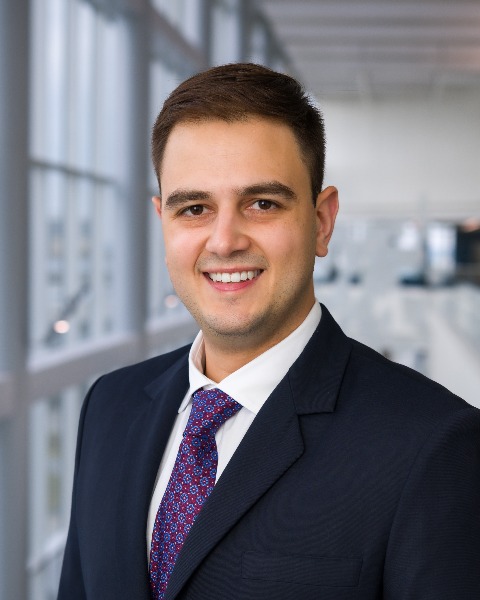Upper GI
91: Intensifying Supportive Care is Associated with Improved Survival in Gastric Cancer Patients with Malignant Ascites

John D. Karalis, MD
Resident
University of Texas Southwestern Medical Center
Dallas, Texas, United States
John D. Karalis, MD
Resident
University of Texas Southwestern Medical Center
Dallas, Texas, United States
John D. Karalis, MD
Resident
University of Texas Southwestern Medical Center
Dallas, Texas, United States- MJ
Michelle R. Ju, MD MPH
Fellow
Duke University Hospital, United States - RF
Rachel Feig, PA-C
Physician Assistant
University of Texas Southwestern Medical Center, United States - RE
Raechelle Estrella, PA-C
Physician Assistant
University of Texas Southwestern Medical Center, United States 
Morgan F. Pettigrew, MD
Resident
University of Texas Southwestern Medical Center, United States- RA
Rodrigo E. Alterio, MD
Resident
University of Texas Southwestern Medical Center, United States 
Andres A. Abreu, MD (he/him/his)
Postsdoctoral Researcher
Department of Surgery, University of Texas Southwestern Medical Center
Dallas, Texas, United States.jpg)
Emile Farah, MD
Postdoctoral Researcher
Department of Surgery, University of Texas Southwestern Medical Center
Dallas, Texas, United States- TS
Tarek Sawas, MD
Assistant Professor
University of Texas Southwestern Medical Center, United States - NS
Nina Sanford, MD
Assistant Professor
University of Texas Southwestern Medical Center, United States - AS
Aravind Sanjeevaiah, MD
Associate Professor
University of Texas Southwestern Medical Center, United States - SH
Suntrea T.G. Hammer, MD
Associate Professor
University of Texas Southwestern Medical Center, United States 
Matthew R. Porembka, MD (he/him/his)
Associate Professor
University of Texas Southwestern Medical Center
Dallas, Texas, United States
Sam C. Wang, MD
Associate Professor
University of Texas Southwestern Medical Center
Dallas, Texas, United States
Abstract Presenter(s)
Submitter(s)
Author(s)
Methods: We performed a retrospective review of our institutional database to identify patients diagnosed with gastric adenocarcinoma and synchronous malignant ascites between 2010-2022. We compared survival between patients diagnosed from 2010-2018, which will be referred to as the historical control era and patients diagnosed from 2019-2022, which will be called the aggressive supportive care era.
Results: 54 patients were included in our analysis; 31 patients were treated in the historical control time frame and 23 patients treated during the aggressive supportive care era. Demographic, clinical, and pathologic characteristics were similar between groups. 3% of historical controls received supplemental tube feeds at diagnosis as compared to 30% of the aggressive supportive care cohort (p=0.008). 3% of historical controls received their first cycle of chemotherapy in the inpatient setting versus 39% of patients treated during the aggressive supportive care era (p=0.001). The median number of chemotherapy cycles received was 5 among historical controls and 9.5 among aggressive supportive care era patients (p = 0.02). The median overall survival for historical control patients was 5.4 months as compared to 10.4 months for patients treated during aggressive supportive care era (p=0.035).
Conclusions:
Gastric cancer patients with synchronous malignant ascites treated during a timeframe when our multidisciplinary team implemented more aggressive supportive care measures had improved OS as compared to historic controls. Our results suggest that aggressive supportive measures for these patients with highly challenging clinical issues and poor prognosis can prolong survival. Specifically, initiation of chemotherapy in the inpatient setting and supplemental nutrition should be considered for patients at high risk for treatment intolerance.
Learning Objectives:
- describe supportive care strategies for gastric cancer patients with malignant ascites.
- describe the potential role for inpatient chemotherapy in select patients with gastric cancer with malignant ascites.
- describe the importance of early and efficient multidisciplinary care to improve the prognosis of gastric cancer patients with malignant ascites.
